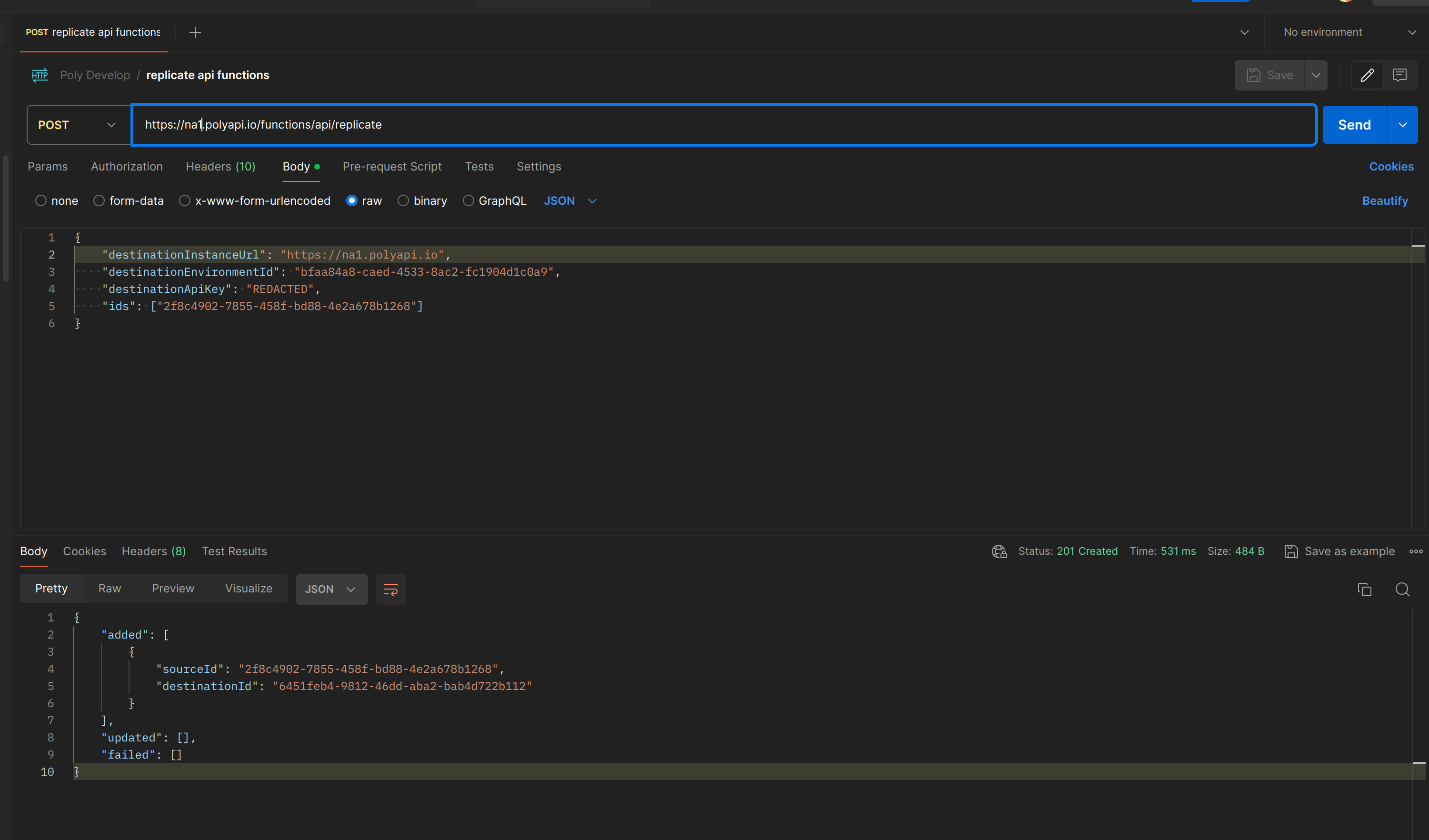Pushing to Another Environment¶
Let’s say we have a bunch of functions in our environment named dev and want to push them to an environment named prod.
In these docs, we’ll go over how!
Note
You’ll need a prod api key to push your functions to the prod environment.
Head over to Managing Users and API Keys for instructions on how to create a new api key for prod!
Copy Your Vari Variables¶
The first task is to copy over your vari variables.
Right now, this is a fairly manual process.
Open up one Vari Management tab and login with your
devenvironment credentialsIn a private window or another browser, open up another Vari Management tab and login using your
prodapi key.Iterate through your
devvariables one-by-one and create a newprodvariable, replacing thevalueof the variables as appropriate (e.g., usingprodsecrets instead ofdev).
When creating the new prod variable, make sure to use the same context and name as the dev variable.
Also be sure to set the visibility of your environment variables as “Environment” so your prod variables are not visible in dev and vice-versa.
See Vari Variables for more information on how to manage your variables.
Replicate Your Api Functions¶
Next up we will replicate over your API functions from your dev environment to your prod environment.
To do this you will need to use the /functions/api/replicate endpoint. If you are on na1, this will be at https://na1.polyapi.io/functions/api/replicate

Here’s an example payload:
{
"destinationInstanceUrl": "https://na1.polyapi.io",
"destinationEnvironmentId": "YOUR_PROD_ENVIRONMENT_ID",
"destinationApiKey": "YOUR_PROD_API_KEY",
"ids": ["12345", "67890"] // LIST OF FUNCTION IDS TO REPLICATE
}
The POST should successfully complete with a 201. You will see a list of the functions that were replicated over.
Added: means the function did not previously exist in the destination and was added.
Updated: means the function already existed in the destination and was updated
Error: means there was an error replicating the function. Please contact support@polyapi.io for help.
That’s it! You’ve now ported over your API functions from your dev environment to your prod environment!
Redeploy Your Server/Client Functions¶
Next up we will redeploy your server functions you have tested in your dev environment to your prod environment.
First, let’s go to your folder where you’ve been hacking on your server/client functions.
Now open up each individual file and run the associated npx poly function add command.
For example, let’s say you have a file named echo.ts containing the following:
// npx poly function add echo echo.ts --context test --server
function echo(firstName: string) {
return `Hello ${firstName}!`;
}
To redeploy this function to your prod environment, you would:
Run
npx poly setupEnter your instance url (e.g. https://na1.polyapi.io)
Enter your
prodapi keyRun
npx poly generate
Now your Poly CLI is pointing toward your prod instance, not your dev instance.
Now just iterate over your npx poly function add commands and run them:
npx poly function add echo echo.ts --context test --server
This will deploy your function to your prod environment!
When you want to switch back to your dev environment, just run npx poly setup again and enter your dev credentials.
Note
PolyAPI has a new project called Git Glide that will allow you to more easily sync your functions to different environments.
Please contact support@polyapi.io to get access to Git Glide!
Conclusion¶
That’s it! You’ve now pushed your integration from your dev environment to your prod environment:
Vari Variables
API Functions
Server Functions
Now you are free to unleash your prod integrations on your production data.
And continuing hacking on your dev environment without fear of breaking anything in production!